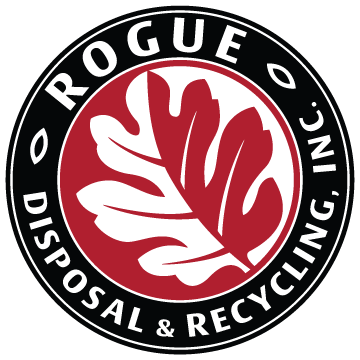A Bold New Vision
In 2011, Rogue Waste Inc. announced a forward-thinking new plan to achieve a greater level of energy independence and the next level of air quality improvement for the Rogue Valley. The idea is to eventually use gas produced at the landfill by decomposing garbage (biogas) to power the trucks that pick up your trash and recyclables.
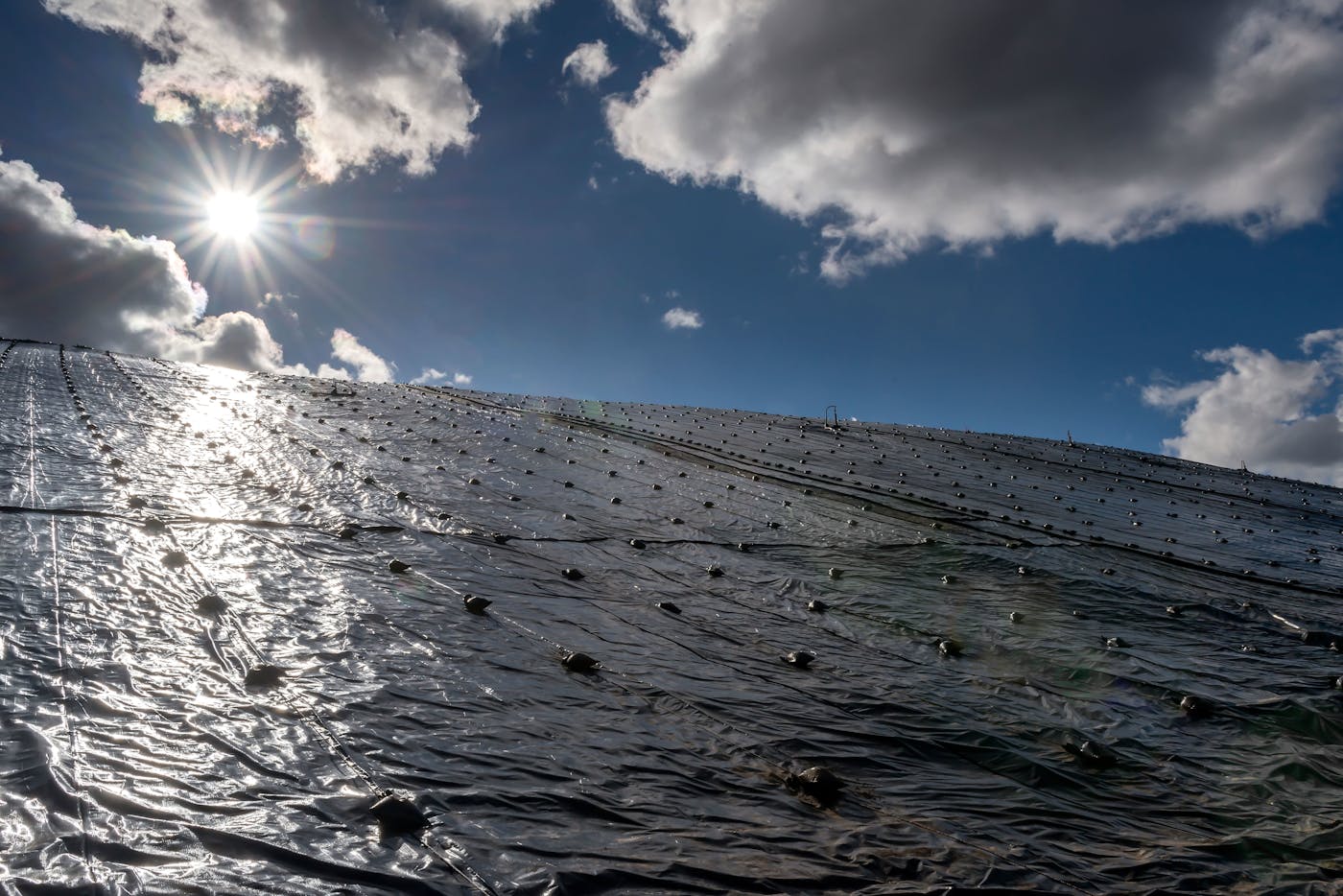
From biogas to truck fuel
When the organic materials in solid waste decompose, they create a biogas that can be refined to produce RNG — a fuel that can be used in vehicles that run on natural gas. In fact, anything that utilizes natural gas — including homes and businesses — can use RNG.
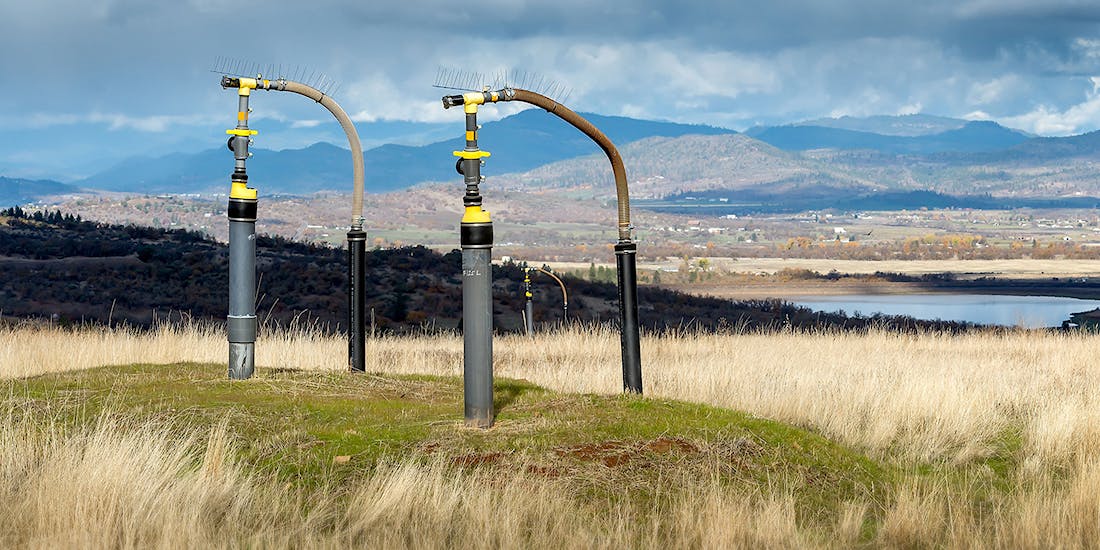
At our Dry Creek Landfill, we have installed a well-field of vertical and horizontal gas wells that capture biogas from decomposing trash. Currently, this biogas is used to create electricity through generators — already providing power for more than 3000 homes in the area. In the future, this biogas will be cleaned and conditioned to remove water, carbon dioxide, hydrogen sulfide and other trace elements, leaving behind a very high concentration of methane known as Renewable Natural Gas (RNG). Once this system becomes fully operational over the next decade, it will transform organic waste into a renewable fuel for commercial vehicles.
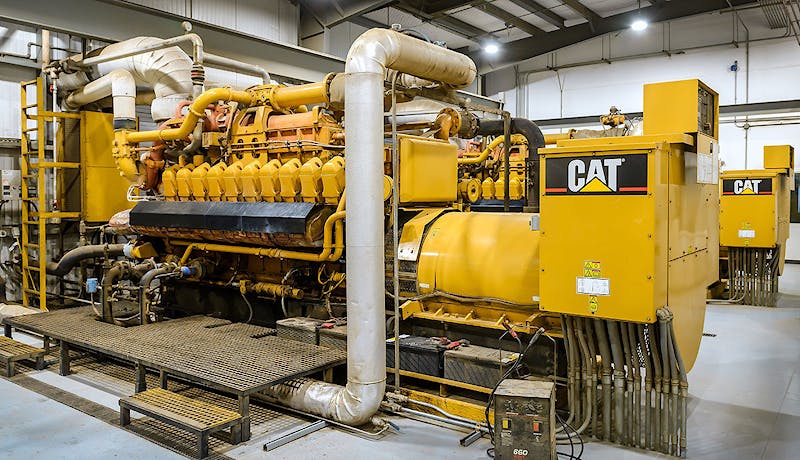
With the ability to produce up to 2 million diesel equivalent gallons per year, this renewable resource has the potential to fuel not only Rogue’s collection fleet but also other clean-burning vehicles and facilities throughout southern Oregon.
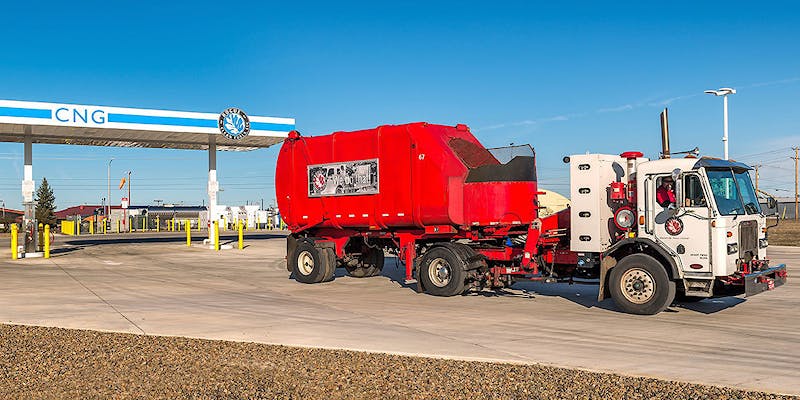
The initial steps in this long-range vision are nearing completion. In 2012, Rogue purchased its first Compressed Natural Gas (CNG) fueled truck. Since the only difference between CNG and RNG is the source of the gas — CNG is derived from fossil fuels while RNG is renewable through decomposition of organic waste — all CNG vehicles can also use RNG. By 2023, the bulk of our trash and recycling fleet — some 36 trucks strong — will be fully converted to run on natural gas, and eventually fuel with RNG from the Dry Creek Landfill.
A tale of two natural gases
Natural gas comes from deep under the earth’s crust and is usually found directly above oil deposits, as it is lighter than oil. When natural gas is compressed to less than 1% of its volume at standard atmospheric pressure, it becomes Compressed Natural Gas, or CNG. Condensing the CNG allows large amounts of fuel to be stored in small places — like a vehicle’s fuel tank. What’s more, CNG is the cleanest burning transportation fuel on the market today. It burns cleaner than petroleum-based products because of its lower carbon footprint. And CNG produces far less of the pollutants that cause greenhouse gas when compared to petroleum-based fuels — up to 40% less. Yet CNG, like oil, is a fossil fuel that has to be extracted from below the earth’s surface.
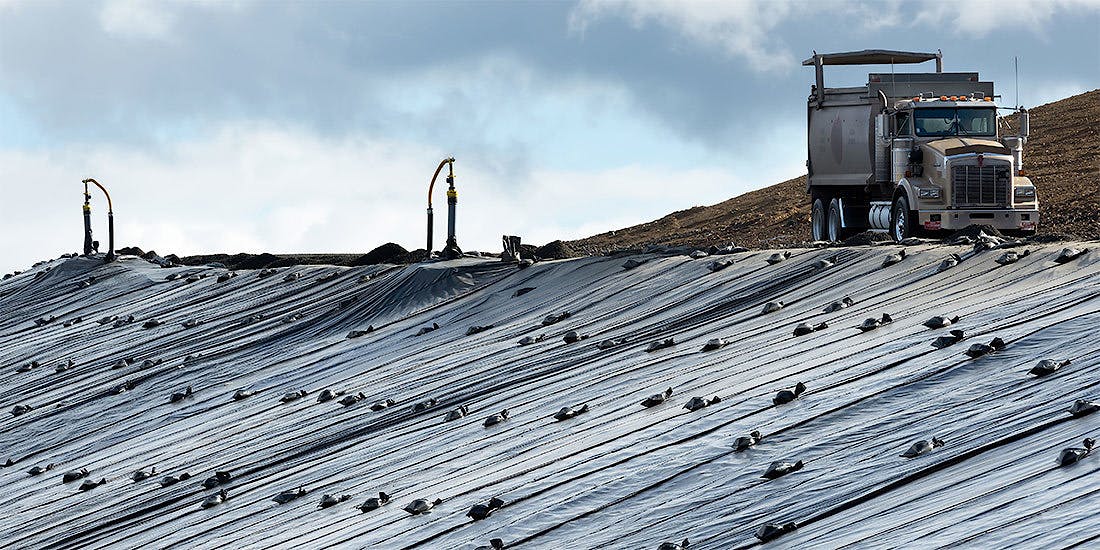
Renewable Natural Gas, or RNG, comes from the decomposition of organic waste — including landfills. RNG boasts a huge reduction in greenhouse gas emissions by recycling carbon that’s already in the atmosphere — whereas burning fossil fuels releases new carbon emissions into the air from materials that were previously buried in the earth. Unlike oil, or even CNG, Renewable Natural Gas is a renewable energy source.
First comes compressed, then comes renewable
To support our shift to clean-burning CNG vehicles and encourage the development and conversion of other fleets in the valley, Rogue Disposal & Recycling — through its affiliate Rogue Clean Fuels — recently completed construction of a public CNG fueling station on Anthony Way in White City.
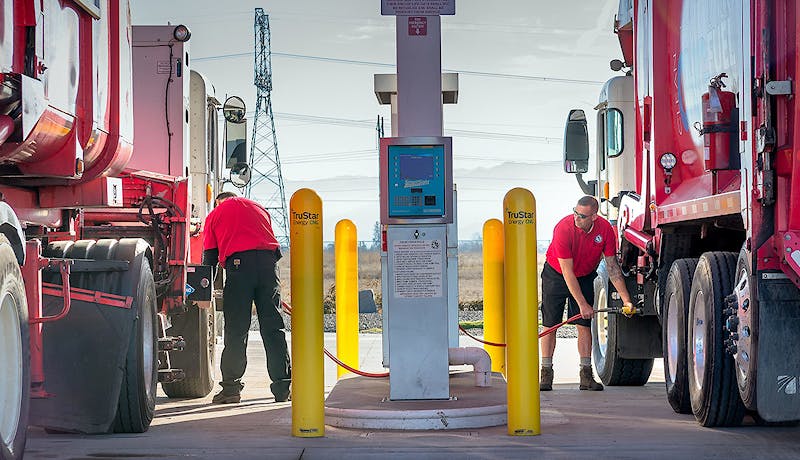
By first creating the infrastructure needed for Compressed Natural Gas, this Clean Fuels CNG station brings Rogue one step closer toward our vision for a comprehensive “closed loop” solid waste system — a system that will one day be fueled with Renewable Natural Gas.
In the end, RNG is up to 70% cleaner than gasoline and diesel, making it an environmentally responsible choice for fleets that run on any kind of natural gas — including heavy-duty trucks like the Rogue Disposal & Recycling trash and recycling collection fleet. Turning the naturally occurring by-product of landfill waste decomposition into a renewable, clean-burning fuel source isn’t something that happens overnight. But with our genuine commitment to the environment and the Rogue Valley, renewable energy is more than our long-term vision, it’s our plan for a cleaner tomorrow.
Share This
